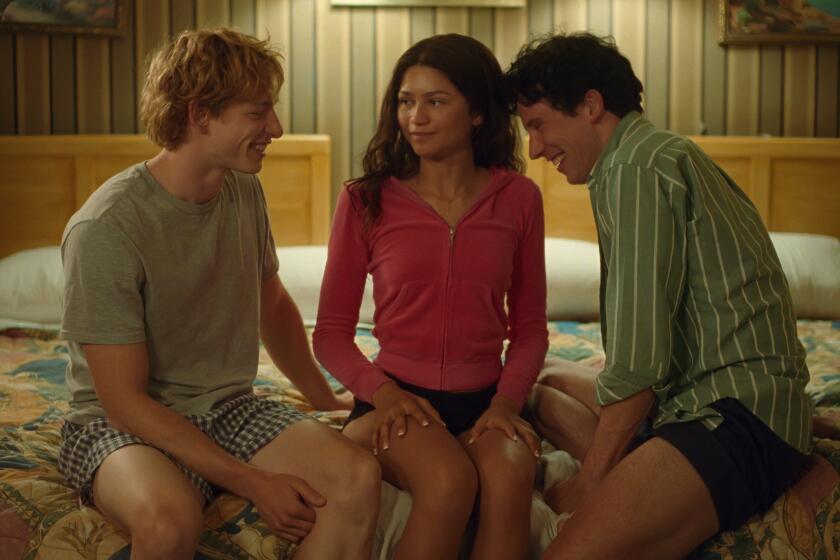CHRISTMAS THOUGHTS : Calendar’s critics share their love of the arts: the gift each would give a friend today : DANCE
Dance on videotape can only suggest the passion, scale and complexity of the real thing--but, in comparison, any other dance-related gift is merely motionless memorabilia.
Videotape allows you to enjoy great dance and dancing free of the vagaries of company touring schedules or last-minute casting switcheroos. And, for once, the ephemeral nature of the art is suspended: A favorite work, performance or passage can be repeated, savored, time after time.
This year, the extraordinary increase in the number of available tapes has yielded the ideal gift for someone just starting to appreciate dance: Alvin Ailey’s “Revelations.”
With its blend of spiritual fervor and technical bravura, “Revelations” has long been one of the most sure-fire highs in world dance, the kind of irresistibly engulfing experience that turns audiences new to the art into instant devotees.
Recently this 27-year-old American classic was issued simultaneously in two excellent home video versions. Take your pick.
“Ailey Dances” (Kultur) and “An Evening With the Alvin Ailey American Dance Theater” (Home Vision) both cost $39.95 and showcase the inimitable dancing of Ailey’s multiracial (but predominantly black) company. They even use the same photo on the cassette boxes. But they approach the thorny problem of translating theater-dance to TV differently.
Recorded at the City Center Theater, New York, in 1982, the Kultur project attempts to preserve the excitement of live performance--complete with audience reactions. In contrast, the Home Vision production was studio-taped in Denmark last year with the sense of intimacy and technical sophistication of a feature film.
There are other major differences. Along with “Revelations,” Kultur programs Ailey’s jazzy “Night Creature” and his contemplative, balletic “The Lark Ascending.” Home Vision includes Judith Jamison’s neo-primitive “Divining” and Talley Beatty’s propulsive street-saga “The Stack-Up.”
The introductory remarks (by Jamison) on the Kultur tape are affectionate and anecdotal; the longer commentaries (by Jamison and Ailey himself) on the Home Vision tape are candid and analytical.
Finally, each tape gives us a good “Cry,” that volcanic solo tribute to black women that Ailey created for Jamison in 1971. Deborah Manning dances it in Home Vision’s “Evening” with great strength and dignity. However, Donna Wood in Kultur’s “Dances” gives one of the most deeply thrilling performances on any dance videotape. Not exactly tidings of comfort and joy, perhaps, but artistry worth celebrating in any season.
For further information about the availability of these videotapes, call Home Vision at (800) 826-3456 or Kultur at (800) 458-5887.
More to Read
The biggest entertainment stories
Get our big stories about Hollywood, film, television, music, arts, culture and more right in your inbox as soon as they publish.
You may occasionally receive promotional content from the Los Angeles Times.










